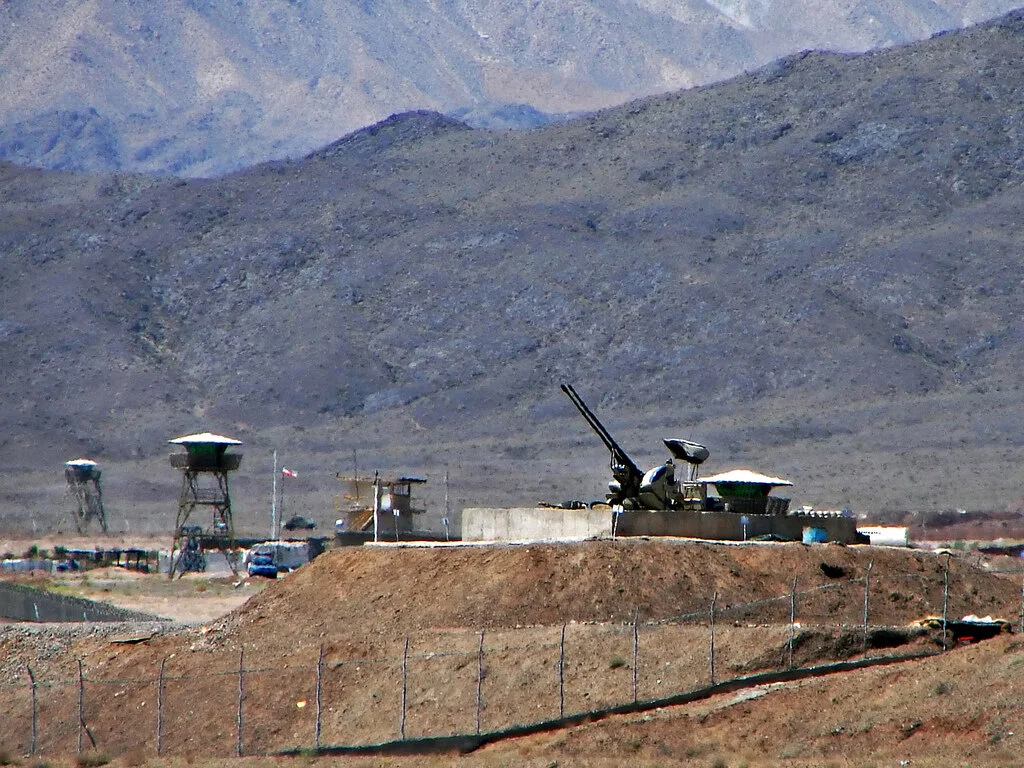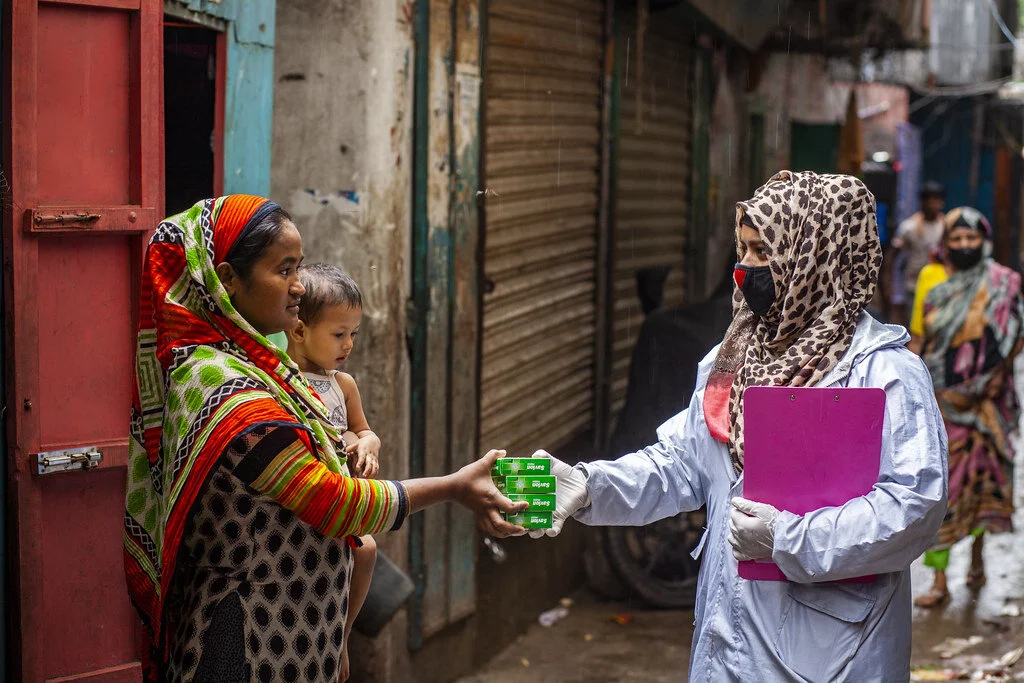The United States, the United Kingdom and Australia have announced a tripartite security agreement on Sept. 15. The deal, titled AUKUS, a combination of the three nations’ abbreviated initials, is meant to challenge China’s increasing claims over territory in the Pacific, reported The New York Times.
US ends 20 year old war, leaving Afghani civilians in the lurch
By Madhavi Rao ’24
Staff Writer
After a 20-year insurgency against the U.S. government, the Taliban, an Islamic militant organization, has taken control of Afghanistan. The extremist takeover was hastened by the U.S.’s withdrawal of troops from Afghanistan in July and August 2021. The militant group's seizure of power has caused human rights concerns for citizens of Afghanistan.
On April 14, President Joe Biden announced that U.S. troops would withdraw from Afghanistan, ending an ongoing war that spanned two decades. Biden stated that “[The U.S.] no longer had a clear purpose in an open-ended mission in Afghanistan,” Al-Jazeera reported. This decision was fully implemented on the Aug. 31 deadline, when the last U.S. troops left the country. The withdrawal of the U.S. military led to the rapid conquest of the country by the Taliban, resulting in the extremist organization’s capture of the capital, Kabul, on Aug. 15.
During the reign of the Soviet Union, the USSR extended forces to Afghanistan as a way of supporting the communist government that existed there. In 1989, the Soviets were driven out by Islamic fighters. The subsequent power vacuum led to the creation of the Taliban, an Islamic extremist group consisting mostly of students, in 1994. When it first emerged, the group was described as consisting of “Islamic purists and Afghan patriots” by The New York Times. The movement was initially welcomed as a form of relief against the Afghan warlords that played a part in driving out the Soviet soldiers. However, in 1996, the Taliban declared Afghanistan an “Islamic Emirate,” ruling with a conservative view of the religion which was intolerant of other religions and oppressive of women’s freedoms. By 1998, the militant group had taken control of most of the country.
Following the 2001 attack by the terrorist group al-Qaeda on the Twin Towers in New York City, Osama bin Laden, the head of al-Qaeda, was harbored by the Taliban in Afghanistan. The U.S. military launched airstrikes alongside Afghan Northern Alliance ground forces and deposed the Taliban rulers when they refused to hand over bin Laden. According to BBC News, the U.S. vowed to “support democracy and eliminate the terrorist threat” in Afghanistan. The Taliban returned, and the situation escalated into the longest war that the U.S. has fought. With the withdrawal of the last U.S. troops on Aug. 31, the future of Afghanistan under Taliban rule is uncertain.
“For at least the past ten years, the Taliban controlled at least half of Afghan territory,” chair of International Relations on the Alumnae Foundation and Professor of Politics Sohail Hashmi said. “The people in rural Afghanistan — the majority of the population — have been under Taliban rule. The choice facing President Biden was to prolong this stalemate for yet another presidential administration, escalate American troop presence to respond to escalating Taliban attacks, or pull out,” Hashmi continued. “In my opinion, President Obama made a crucial mistake when he decided to continue the American presence in Afghanistan after Osama bin Laden was killed in 2011. Remember, the U.S. attacked Afghanistan in 2001 to eliminate the threat from al-Qaeda coming from that country. Ten years later, bin Laden was killed not in Afghanistan, but deep in Pakistan.”
“Over the 20-year arc of the war, it has been a story of U.S. overreach and, at times, a self-deluding refusal to face facts,” American journalist David Ignatius wrote in an opinion piece for The Washington Post.
“The problem with the evacuation, in part, was that military and civilian efforts were operating on different clocks,” Ignatius said. “The military raced out by July 1, embracing the generals’ credo, ‘speed is safety,’ and leaving behind only a token force of 650.” He continued, “The civilian withdrawal proceeded at a slower pace, moving more like ‘pond water’ than a rushing torrent, in the words of one four-star general. That was partly because Biden had promised President Ashraf Ghani to avoid a rush for the exits that might trigger a panic. It turned out that it was Ghani himself who panicked and fled for his life, handing Kabul to the Taliban.”
Omid, a 26-year-old Afghani medical student, told Al-Jazeera, “They gave us pens and taught us about freedom, and then just as quickly, they took it all away,” referencing the end of U.S. presence in the country. In an interview with the news outlet, he went on to explain that the main concern for many Afghani civilians at the moment is staying out of poverty, as well as finding a means of leaving the country.
Abhilash Medhi, assistant professor of history at Mount Holyoke College, commented on the conditions of people in the country: “In terms of inflation, food security, poverty, etc. the country might face similar problems as it did under Taliban rule in the 1990s. People are already lining up to sell household items for money. One statistic states that one third of the country now has food insecurity.”
One reason for the economic instability is the withdrawal of U.S. aid to the country. Foreign aid accounts for nearly half the legal economy of Afghanistan, according to a report by The New York Times, meaning that stopping this inflow of cash could lead to a serious financial crisis in the nation. The exit of U.S. troops also removed a major source of tax revenue from the country.
The Taliban’s conservative views are also a source of concern when considering the country’s future. In a report on the conditions of human rights in Afghanistan, Amnesty International stated, “Women and girls continued to face gender-based discrimination and violence throughout Afghanistan, especially in areas under Taliban control, where their rights were violated with impunity and violent ‘punishments’ were meted out for perceived transgressions of the armed group’s interpretation of Islamic law.”
Medhi further clarified, “A large portion of the country was already under Taliban rule. In the south and the east, in regions such as Helmand, Wardak and Paktia, there were entire districts which were already controlled by the Taliban.” Medhi continued, “The Taliban’s strict doctrine is not dissimilar to how some ethnic groups, such as the Pashtuns, were already living. However, for groups such as the Hazaras, the Uzbeks and the Tajiks, these developments can be very troubling. The Taliban takeover means very different things for people based on their ethnicity and gender.”
Massoud, a shopkeeper in the capital city of Kabul, told Al-Jazeera, “The former governments were full of corrupt thieves, but now, we have no freedoms.”
Haitian president assassinated
Jovenel Moïse, the president of Haiti, was assassinated in his Port-au-Prince home on July 7. In the weeks since his assassination — which investigators and the country’s Prime Minister have deemed “highly coordinated” — the country has seen mass mobilization and deep division. Over two dozen arrests have been made since the assassination, although little has been shared regarding the suspects’ individual roles.
Violent protests sweep South Africa after former President Zuma’s arrest
Nigerian government bans Twitter, threatens to expand censorship
April marks beginning of the spiritual month of Ramadan
On April 12, people around the world began observing the Islamic tradition of Ramadan, which is celebrated on the ninth month of the Islamic calendar. It is a time for Muslims to reflect, fast, pray and build their relationships with God. The ninth month is believed to be when the Prophet Muhammad had a revelation about the Quran, the holy book of Islam. This revelation is commemorated through Ramadan.
Nuclear deal talks resume after recent cyberattack on Iranian nuclear facility
Coronavirus pandemic leads North Korea to withdraw from Tokyo Olympics
Of the 206 countries planning to participate in the 2020 Tokyo Olympics, North Korea is the first to announce that it will not attend the event due to the ongoing coronavirus pandemic. According to The Associated Press, the country’s decision, which was released on a government-run website, was made to protect its athletes from COVID-19.
Senegal erupts in protests after the arrest of the opposition leader
In the past few weeks, protests have spread across Senegal, spurred by the arrest of the opposition party leader Ousmane Sonko. Sonko was arrested for rape, a charge many consider false and politically motivated given that the current head of the Senegalese government has a history of creating legal charges to suppress opponents. Despite this, In 2019, Senegal was categorized as one of the most democratic countries in Africa by the Economist Intelligence Unit.
Murder sparks conversation on anti-LGBTQ+ sentiment in Belgium
Early in the morning on Saturday, March 6, the body of 42-year-old David Polfliet was discovered in a park in Beveren, Belgium. According to a report in the Flemish newspaper De Standaard, a 17-year-old turned himself in to the police, who later arrested him, a 16-year-old and another 17-year-old as the perpetrators of Polfliet’s murder. The group used a dating app to lure Polfliet to the park. It remains unclear at this time if the trio intended to murder Polfliet or to physically abuse him.
COVID-19 brief
There had been 132,775,013 cumulative cases of the COVID-19 virus across the world as of April 7, 2021. The United States continues to lead this number with 30,907,352 confirmed cases — the highest in the entire world. As vaccinations become more accessible and cases continue to rise, inequities in treatment and testing continue to exacerbate the health crisis.
Regional responses to COVID-19 change over year
Snowball is inaccessible to international remote learners
Over the past year, the meaning of a normal college experience has changed drastically. What was supposed to be a time of meeting new people and making memories has transformed completely. The online college experience is devoid of interaction with peers beyond an educational setting, which is negatively impacting many students.
Global COVID-19 counter
Israeli Prime Minister Begins Trial
Benjamin Netanyahu, Israel’s longest-serving prime minister, is facing charges of fraud, bribery and breach of trust, to all of which he is pleading not guilty. The trial, which began in 2019, recommenced on Monday, Feb. 8, a month before the country’s next election. Netanyahu, who has been in power for over 14 years, is facing criticism for his handling of the COVID-19 pandemic, along with his right-wing ideology.
Former Nazi secretary tried for murder of thousands 70 years after the fact
The German government prosecuted a former Nazi secretary for being an accessory to the murder of more than 10,000 people in concentration camps during World War II. Although there is no evidence of the defendant’s specific involvement in these deaths, she is being tried for her role in the operation of the concentration camps, the functioning of which led to the murder of thousands.
Celebrating Lunar New Year
China Night is an annual event held by the Chinese Cultural Association to celebrate the Lunar New Year, also known as the Spring Festival, with song and dance. In past years, it has been an evening of food, music and community. Because of the need for social distancing and remote formats for large events this year, however, the CCA directed students to watch the live CCTV Spring Festival Gala, a variety show broadcast on the eve of the Lunar New Year featuring an array of performances. The CCA posted traditional Chinese customs on Instagram while the Spring Festival Gala aired.
Environmental Changes in Africa Related To Globalization Policies
Two recent environmental developments in Africa have highlighted the role that farmers may play in sustainability for the continent. Levels of pollutant gases have lowered in areas, and a recent lawsuit in favor of local farm owners appears to signal a renewed sense of urgency around the issue of climate change.
Myanmar Falls Back Under Military Rule After a Decade of Democracy
In an effort to fight alleged voter fraud in the country’s general elections, the Myanmar military has staged a coup, detaining their ruler Aung San Suu Kyi and other members of her party, the National League for Democracy. On Monday, Feb. 1, the military, officially known as the Tatmadaw, declared a yearlong state of emergency. The country’s power is now in the hands of army official Senior General Min Aung Hlaing.
Protests Break Out in Russia Against the Jailing of Aleksei Navalny
Tens of thousands of Russians have rallied to demand the release of jailed opposition leader Aleksei A. Navalny.
Protests initially broke out on Jan. 23 from civilians voicing widespread disappointment with the current government, which Russian President Vladimir Putin has presided over for almost two decades. The rallies continued to grow throughout the following week and spread across the nation despite a large police presence and state threats of jailing, according to The New York Times.
















